Home>Articles>How Often Should You Change Smoke Detector Batteries?
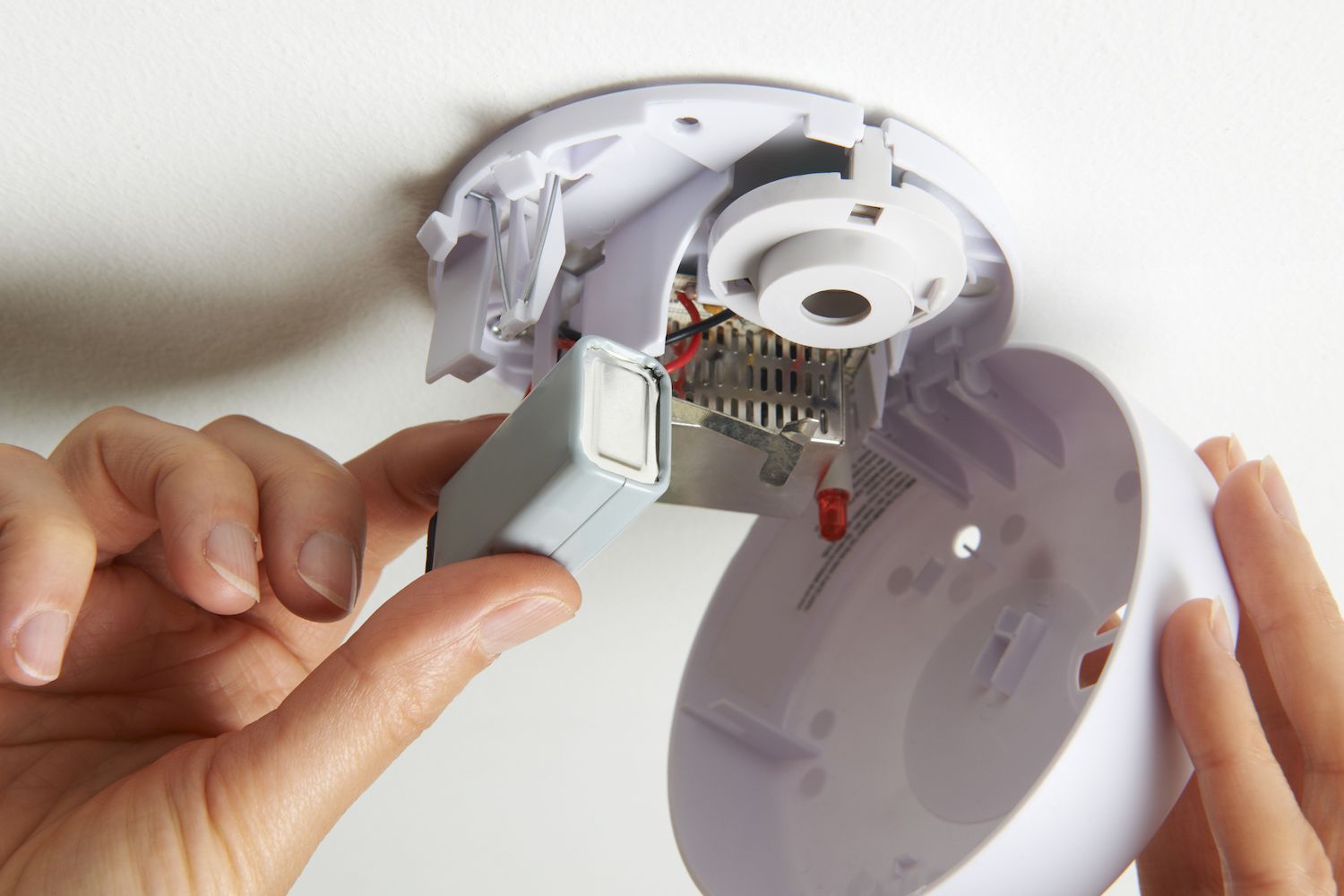

Articles
How Often Should You Change Smoke Detector Batteries?
Modified: February 24, 2024
Discover the recommended frequency for changing smoke detector batteries in this informative article. Ensure your home's safety by staying updated on this crucial maintenance task.
(Many of the links in this article redirect to a specific reviewed product. Your purchase of these products through affiliate links helps to generate commission for Storables.com, at no extra cost. Learn more)
Introduction
Smoke detectors are crucial safety devices that every home should have. They play a vital role in alerting occupants to the presence of smoke and potential fire hazards. While the detector’s main components, such as the sensors and electronic circuits, are essential for its proper functioning, the batteries are equally important.
Smoke detector batteries provide the necessary power to keep the device operational, ensuring it can detect and alert residents in case of a fire. However, many homeowners often overlook the significance of regularly maintaining and replacing these batteries, which can ultimately compromise the effectiveness of the smoke detector.
In this article, we’ll explore the importance of smoke detector batteries, factors to consider when determining how often to change them, manufacturer recommendations, signs of a low battery, and testing and maintenance tips to ensure your smoke detectors are always in optimal working condition.
Key Takeaways:
- Regularly test and maintain smoke detector batteries to ensure optimal functionality and reliable fire protection for your home and loved ones.
- Follow manufacturer recommendations and consider factors such as battery type, usage, and environment when determining how often to change smoke detector batteries.
Importance of Smoke Detector Batteries
The batteries in a smoke detector are essential for one primary reason: they provide the power needed to keep the device running smoothly. In the event of a fire, a properly functioning smoke detector can mean the difference between life and death.
Smoke detectors are designed to sense the presence of smoke in the air. When smoke particles enter the detector, they disrupt the airflow, triggering an alarm. This early warning system allows occupants to evacuate the building quickly and seek safety before the fire spreads.
However, without functioning batteries, a smoke detector becomes useless. Even if the device is hardwired into the electrical system, it typically relies on batteries as a backup power source in case of a power outage. Moreover, some smoke detectors operate solely on battery power, making the batteries their only source of energy.
Regularly changing smoke detector batteries is crucial for ensuring that the device remains operational. A fresh set of batteries ensures consistent power, enabling the detector to continuously monitor for smoke and provide timely alerts.
Additionally, keeping the batteries in good condition avoids false alarms, which can be inconvenient and may cause occupants to disregard future alarm sounds. False alarms can occur when the batteries are weak or nearing the end of their lifespan, causing the detector to emit a sporadic beeping sound.
Ultimately, the importance of smoke detector batteries cannot be overstated. These batteries act as the lifeblood of the device, enabling it to fulfill its life-saving purpose. Regularly replacing the batteries ensures that the smoke detector remains reliable, protecting you and your loved ones from the dangers of fire.
Factors to Consider
When it comes to determining how often to change smoke detector batteries, there are several factors to consider. While general guidelines provide a good starting point, it’s important to take into account specific factors that may affect battery life and performance.
1. Battery Type: The type of battery used in the smoke detector can play a role in how often it needs to be replaced. Alkaline batteries, for example, tend to last longer than standard carbon-zinc batteries. Lithium batteries, on the other hand, have an even longer lifespan and are often recommended for high-end or long-lasting detectors.
2. Usage: The frequency of battery changes can depend on how often the smoke detector is triggered. For example, if you frequently burn candles or cook with an open flame, the detector may be more likely to be triggered, draining the battery faster.
3. Environment: The environment in which the smoke detector is placed can impact battery life. Extreme temperatures, humidity, and exposure to dust or dirt can shorten the lifespan of batteries. If your smoke detector is located in a harsh environment, it may require more frequent battery changes.
4. Manufacturer Recommendations: It’s important to refer to the manufacturer’s instructions and recommendations for your specific smoke detector model. They may provide guidance on the best battery type to use and the suggested frequency for battery replacement.
5. Age of the Batteries: Even if the smoke detector is functioning correctly, it’s a good idea to replace the batteries at least once a year, regardless of their remaining power. Over time, batteries can lose their ability to hold a charge, potentially compromising the performance of the smoke detector.
By considering these factors, you can make a more informed decision about how often to change the batteries in your smoke detector. Regularly assessing these factors will help ensure that your smoke detector remains in optimal working condition, providing you with reliable protection against fire hazards.
Manufacturer Recommendations
When it comes to changing smoke detector batteries, it’s always wise to follow the recommendations provided by the manufacturer. Each smoke detector model may have specific instructions and guidelines for battery replacement.
Manufacturers typically include battery recommendations in the user manual that comes with the smoke detector. They may specify the type of battery to use, such as alkaline or lithium batteries, as well as the recommended brand or specific battery model. It’s important to adhere to these recommendations to ensure optimal performance and reliability.
In addition to battery type, the manufacturer may provide guidance on the recommended frequency for battery replacement. Some common recommendations include:
- Replace batteries once a year
- Replace batteries every six months
- Replace batteries when the low-battery alert sounds
It’s important to note that these are general guidelines, and the frequency may vary depending on factors such as battery type, usage, and environmental conditions.
Manufacturers may also provide additional maintenance tips to keep your smoke detector in good condition. These may include regularly testing the detector, cleaning it from dust and debris, and ensuring that it is properly mounted on the ceiling or wall.
If you no longer have the user manual or cannot find the manufacturer’s recommendations, you can often find this information on the manufacturer’s website or by contacting their customer support. They can provide you with specific guidelines for your smoke detector model.
By following the manufacturer’s recommendations, you can ensure that your smoke detector operates at its best and provides reliable fire protection for your home and loved ones.
It is recommended to change smoke detector batteries at least once a year, or when the low battery warning chirps. It’s also a good idea to test your smoke detectors monthly to ensure they are working properly.
Frequency of Battery Replacement
The frequency of battery replacement for smoke detectors can vary depending on several factors, including the type of battery, manufacturer recommendations, and individual circumstances. While there are general guidelines to follow, it’s important to assess these factors and make an informed decision based on your specific situation.
1. General Recommendations: As a general rule, it is advisable to replace smoke detector batteries at least once a year. This ensures that the batteries are fresh and can provide optimal power to the detector. Some experts also recommend replacing the batteries every six months to maintain peak performance.
2. Low-Battery Indicator: Many smoke detectors have a low-battery indicator that emits a beeping sound or flashes a light when the batteries are running low. If your smoke detector has this feature, it is crucial to heed the warning and replace the batteries immediately. Ignoring the low-battery indicator can compromise the effectiveness of the smoke detector.
3. Battery Type: The type of battery used in the smoke detector can also influence the frequency of replacement. Alkaline batteries, for instance, tend to last longer than standard carbon-zinc batteries. Lithium batteries, known for their extended lifespan, may require less frequent replacement.
4. Specific Manufacturer Recommendations: It’s important to refer to the manufacturer’s instructions and recommendations for your smoke detector model. They may provide specific guidelines on the recommended frequency for battery replacement based on the device’s design and power requirements.
5. Individual Factors: Individual circumstances can also impact battery life and replacement frequency. Factors such as the presence of pets or excessive cooking with open flames can cause the smoke detector to be triggered more frequently, leading to faster battery drain. Additionally, extreme temperatures, humidity, or exposure to dust and dirt can affect battery performance.
Assessing these factors can help you decide on the appropriate frequency of battery replacement for your smoke detectors. Regularly testing the detectors and paying attention to any low-battery alerts are essential steps in ensuring that your smoke detectors remain in optimal working condition and provide reliable fire detection.
Signs of Low Battery
It’s crucial to know the signs of a low battery in your smoke detector. Recognizing these signs allows you to take prompt action and replace the batteries to ensure the continued functionality of the device. Here are some common signs to be aware of:
1. Beeping or Chirping Sound: When the batteries in a smoke detector are running low, the device will emit a beeping or chirping sound. This sound is a warning that the batteries need to be replaced. The specific pattern of the beeps or chirps may vary depending on the manufacturer or model of the smoke detector.
2. Flashing Light: Some smoke detectors have a visual indicator, such as a flashing light, to alert you that the batteries are running low. This indicator is typically located on the front or side of the device. If you notice a consistent flashing light on your smoke detector, it’s a sign that the batteries need to be replaced.
3. Failure to Respond to Test Button: Most smoke detectors have a test button that allows you to check if the device is functioning correctly. If you press the test button and the smoke detector does not produce a loud and distinct alarm sound, it could indicate a low battery. The device may still emit a weak or muffled sound, but it will not be as robust as when the batteries are fully charged.
4. Dysfunctional Alarm: A smoke detector with a low battery may not function properly when triggered by the presence of smoke or fire. It may produce a weak alarm sound or fail to emit any sound at all. In such cases, the batteries should be replaced immediately to ensure that the device can effectively detect and alert you to potential fire hazards.
It’s important to note that these signs may vary depending on the specific smoke detector model or manufacturer. It’s always best to refer to the user manual or manufacturer’s instructions for guidance on how to identify low battery warnings specific to your smoke detector.
Regularly testing your smoke detectors and being proactive in replacing batteries when they are low is critical to ensure that these devices can perform their life-saving function effectively. Ignoring low battery signs can compromise the overall safety of your home and put you and your family at risk.
Testing and Maintenance
Regular testing and maintenance of smoke detectors are essential to ensure their proper functioning and reliability. Here are some key steps to follow:
1. Test the Smoke Detectors: It’s important to test your smoke detectors regularly to confirm that they are working correctly. Most smoke detectors have a test button that, when pressed, activates the alarm sound. Follow the manufacturer’s instructions to perform the test, and if the alarm doesn’t sound or is weak, it might indicate a low battery or a malfunction that needs to be addressed.
2. Clean the Smoke Detectors: Over time, smoke detectors can accumulate dust, dirt, or other debris, which can affect their performance. Use a soft brush or a vacuum cleaner with a brush attachment to gently clean the outside of the detector. Avoid using harsh chemicals or spraying liquids on the device, as this could damage it.
3. Check the Batteries: Regularly inspect the batteries in your smoke detectors to ensure they are properly installed and in good condition. Look for signs of corrosion or leakage, and replace any damaged batteries immediately. If you have multiple smoke detectors in your home, it’s a good idea to schedule their battery replacements at the same time for convenience.
4. Replace the Batteries: As mentioned earlier, it’s generally recommended to replace smoke detector batteries at least once a year or according to the manufacturer’s guidelines. However, if you experience regular low-battery alerts or notice signs of battery depletion, replace them promptly to maintain the effectiveness of the smoke detectors.
5. Maintain a Maintenance Schedule: Establish a regular maintenance schedule for your smoke detectors. Set reminders to test the devices monthly or quarterly, check the batteries, and perform any necessary cleaning. This ensures that the detectors are always in optimal working condition, providing you with reliable fire detection.
6. Involve the Entire Household: Educate everyone in your household about the importance of smoke detector testing and maintenance. Encourage them to report any issues with the detectors promptly and remind them to notify you if they hear a low-battery warning sound.
Remember, smoke detectors are your first line of defense against potential fire hazards. Regular testing and maintenance are essential to ensure their reliability and effectiveness in providing early warning in the event of a fire. By incorporating these practices into your routine, you can keep your smoke detectors in optimal working condition and enhance the safety of your home.
Conclusion
Smoke detectors are critical safety devices that play a vital role in protecting our homes and loved ones from the dangers of fire. They rely on batteries to provide the necessary power for their operation, making it essential to pay attention to their maintenance and replacement.
In this article, we’ve explored the importance of smoke detector batteries and discussed factors to consider when determining how often to change them. We’ve also highlighted the significance of following manufacturer recommendations and understanding the signs of low battery to ensure the continuous functionality of the smoke detectors.
Regularly testing and maintaining smoke detectors is key to their effectiveness. By implementing a maintenance routine that includes testing the detectors, cleaning them from dust and debris, and checking and replacing batteries as needed, you can ensure that your smoke detectors are always ready to provide early warning in case of a fire.
Remember, the frequency of battery replacement may vary based on factors such as battery type, usage, and environment. It is crucial to assess these factors and consult the manufacturer’s guidelines to make the most informed decision.
Ultimately, the safety of your home and family should always be a top priority. By prioritizing proper smoke detector maintenance, you can have peace of mind knowing that you’ve taken important steps to protect your loved ones and yourself from the devastating effects of a fire.
So, don’t neglect the batteries in your smoke detectors. Keep them fresh, follow manufacturer recommendations, and regularly test and maintain them. It’s a small effort that can make a significant difference in ensuring your home’s fire safety.
Frequently Asked Questions about How Often Should You Change Smoke Detector Batteries?
Was this page helpful?
At Storables.com, we guarantee accurate and reliable information. Our content, validated by Expert Board Contributors, is crafted following stringent Editorial Policies. We're committed to providing you with well-researched, expert-backed insights for all your informational needs.
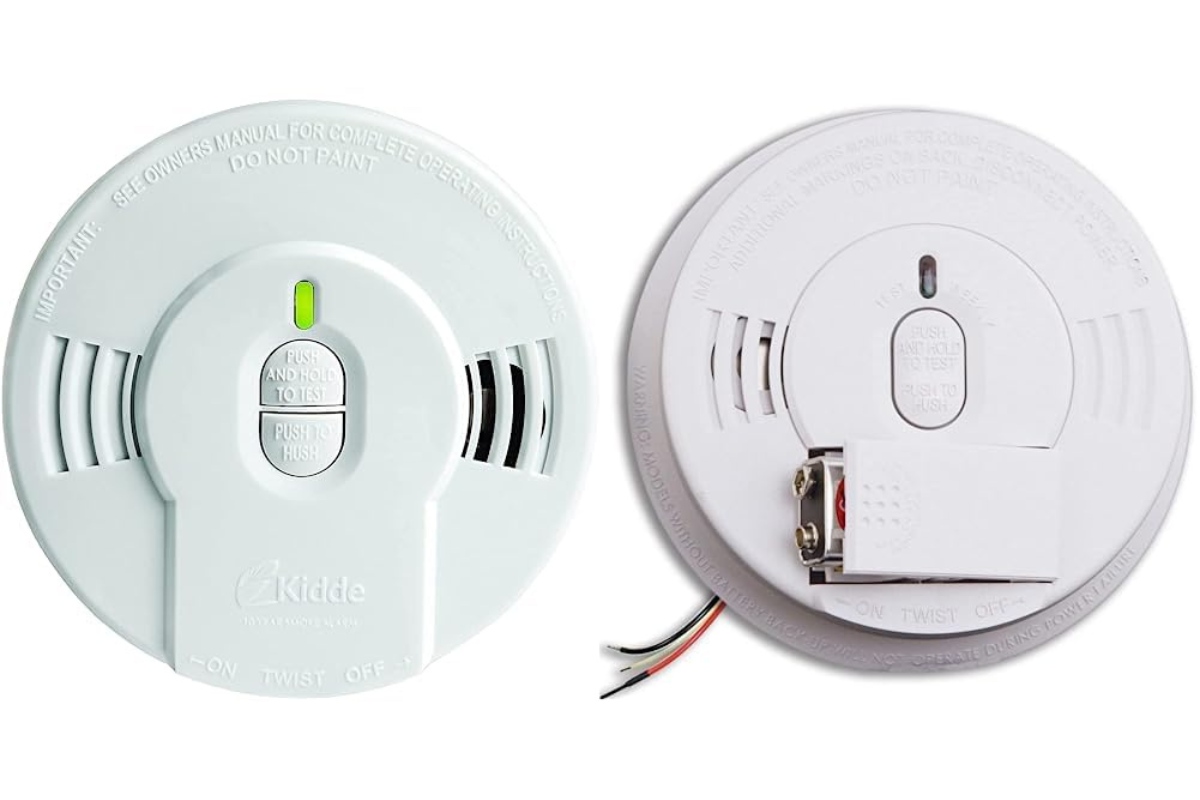
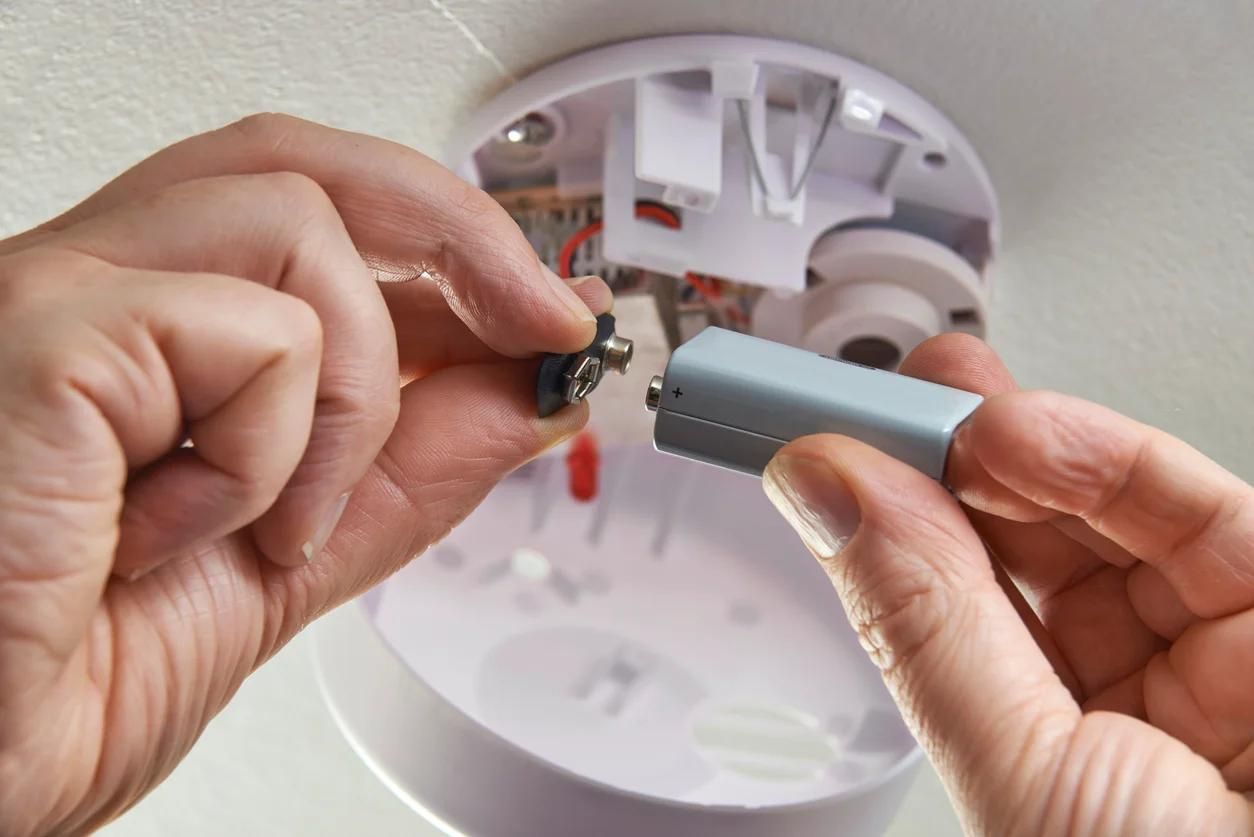
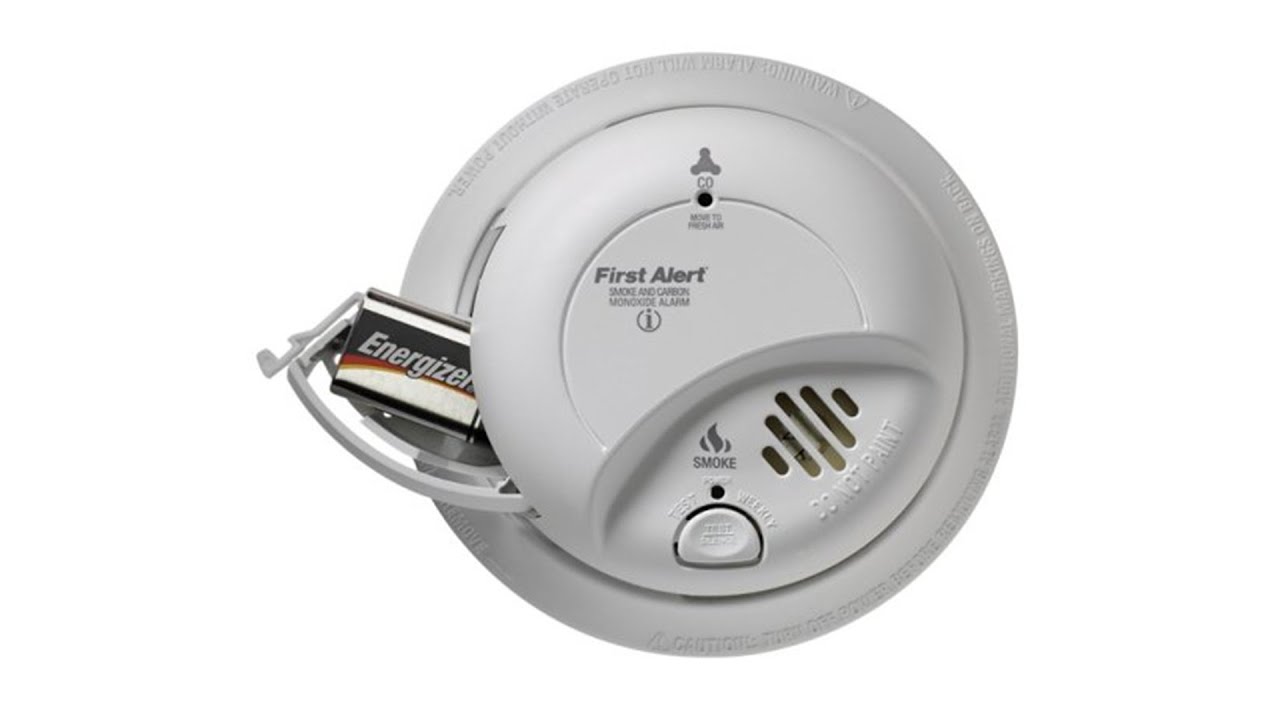
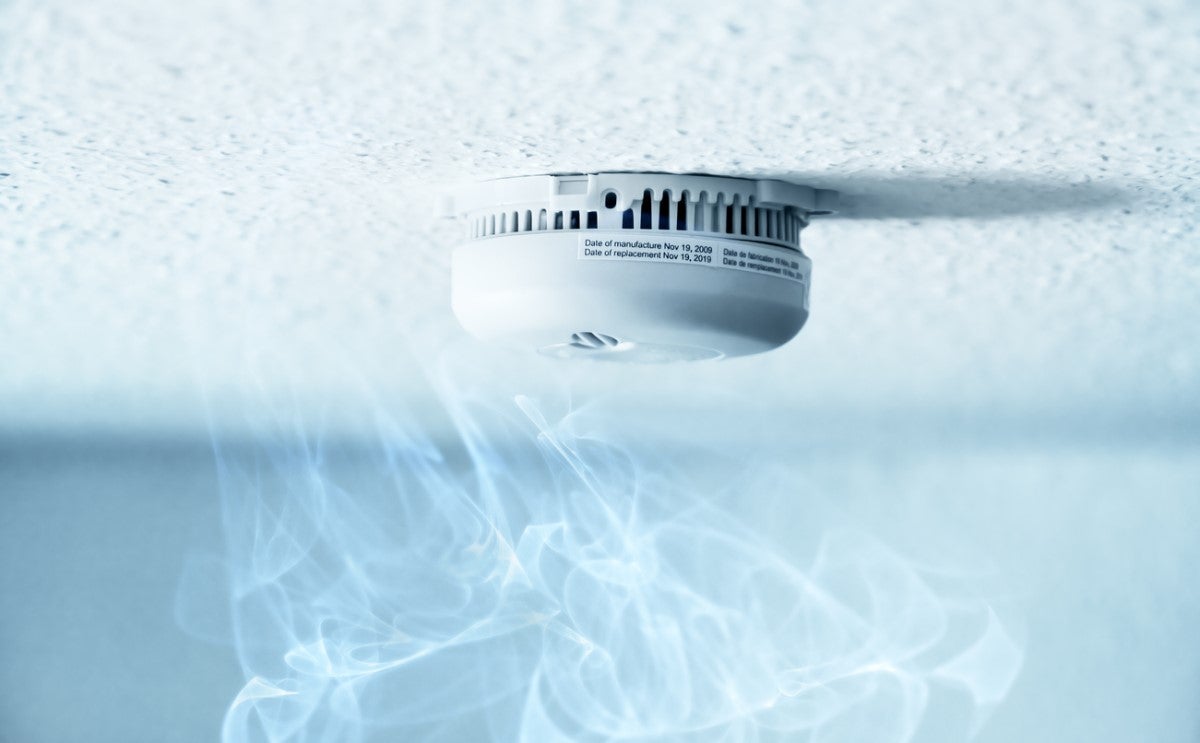
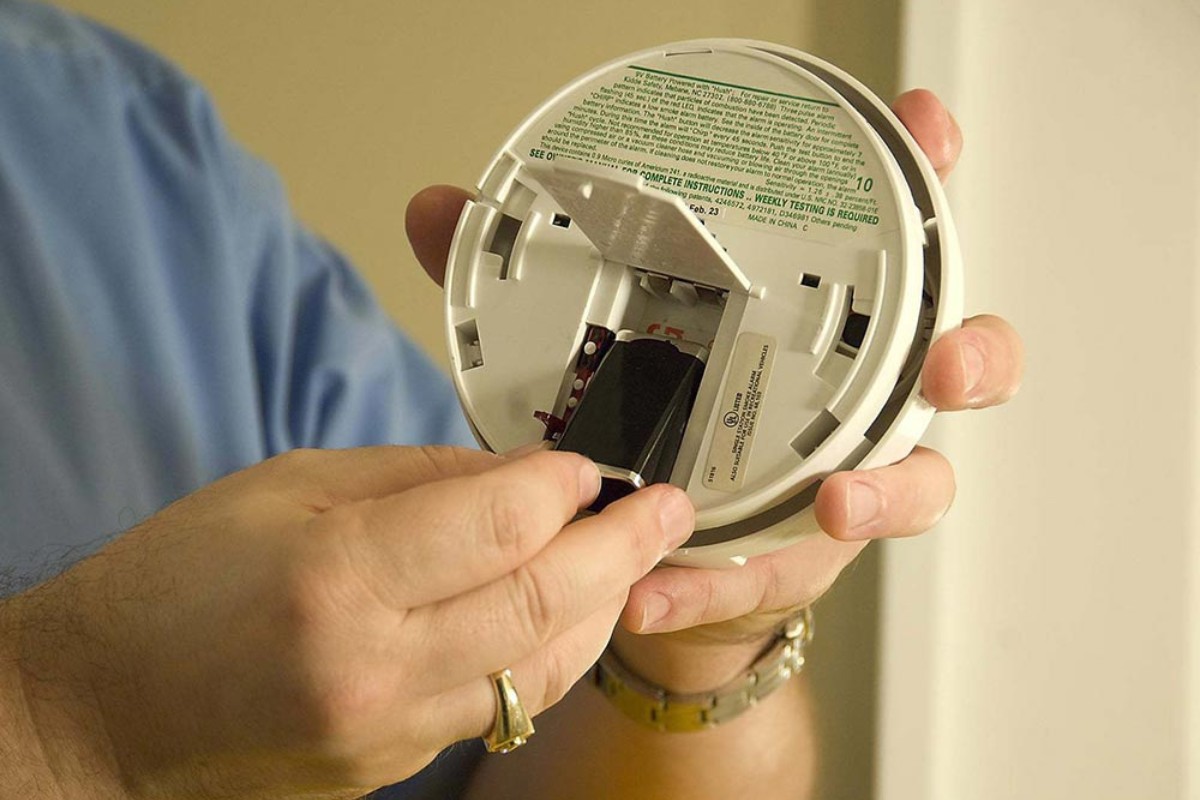
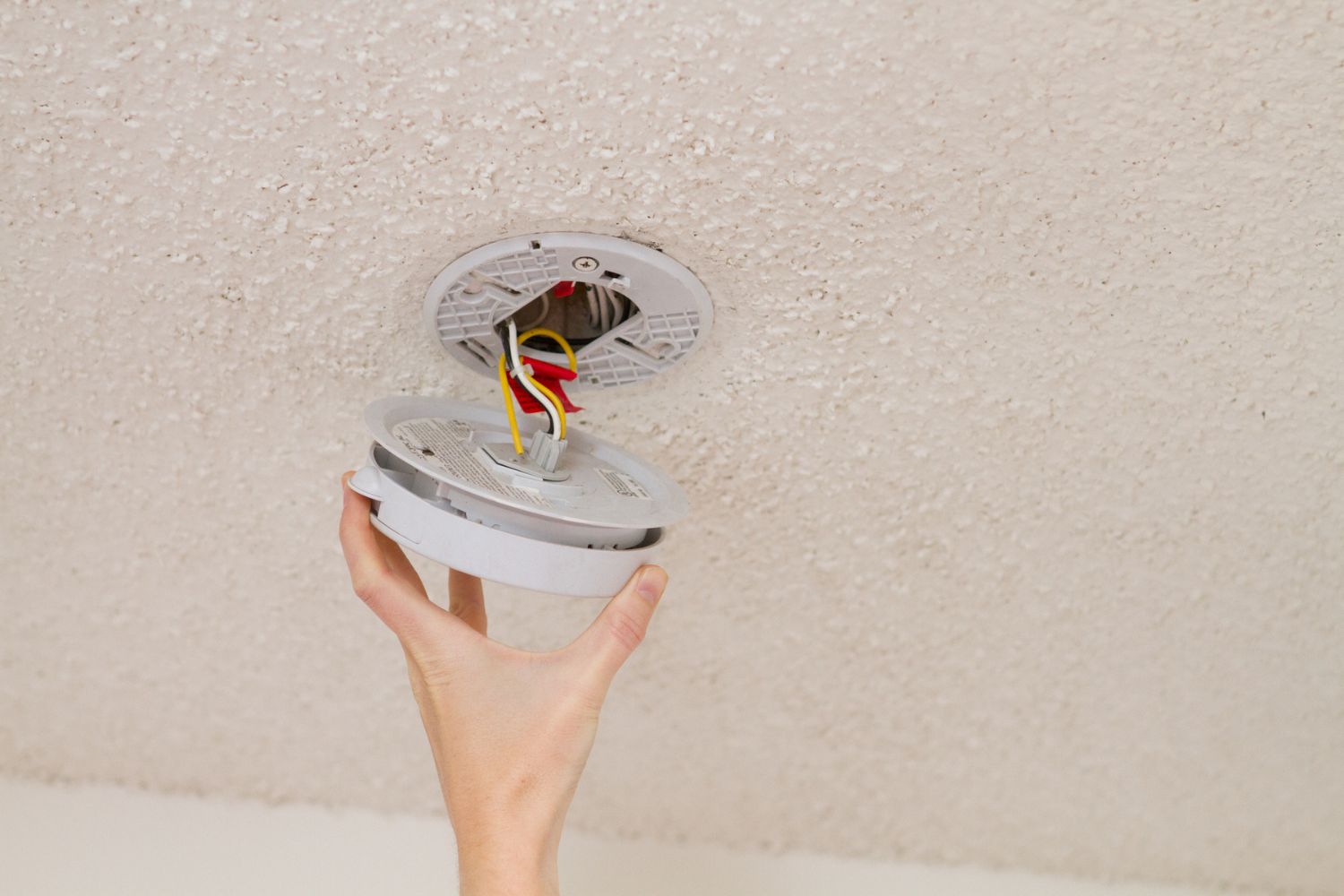
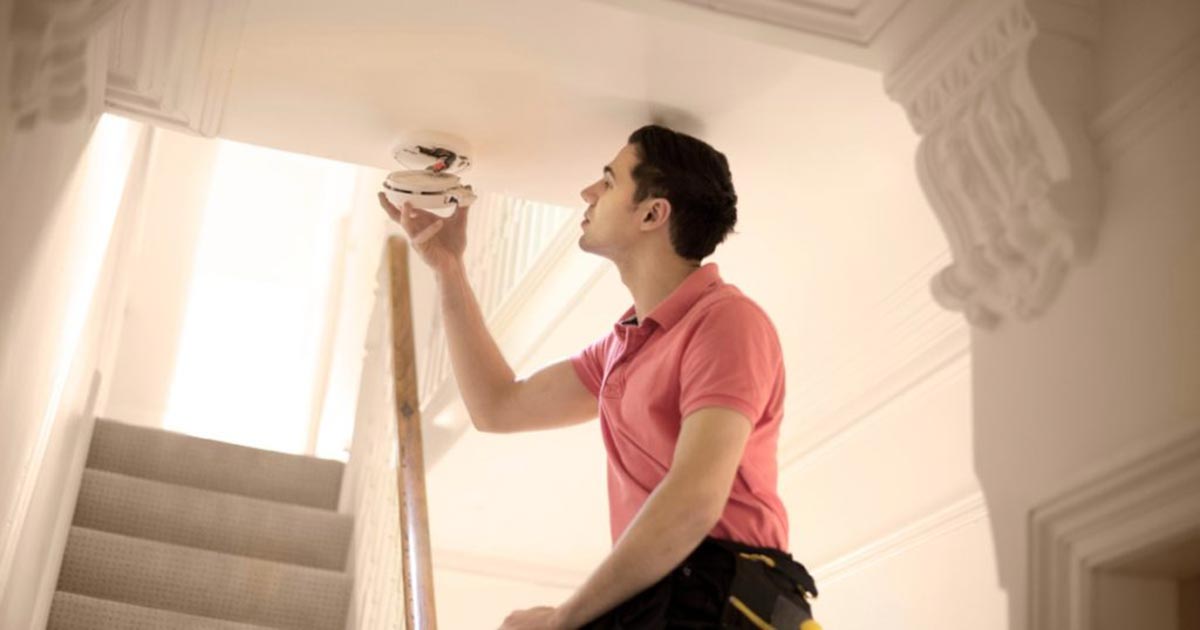
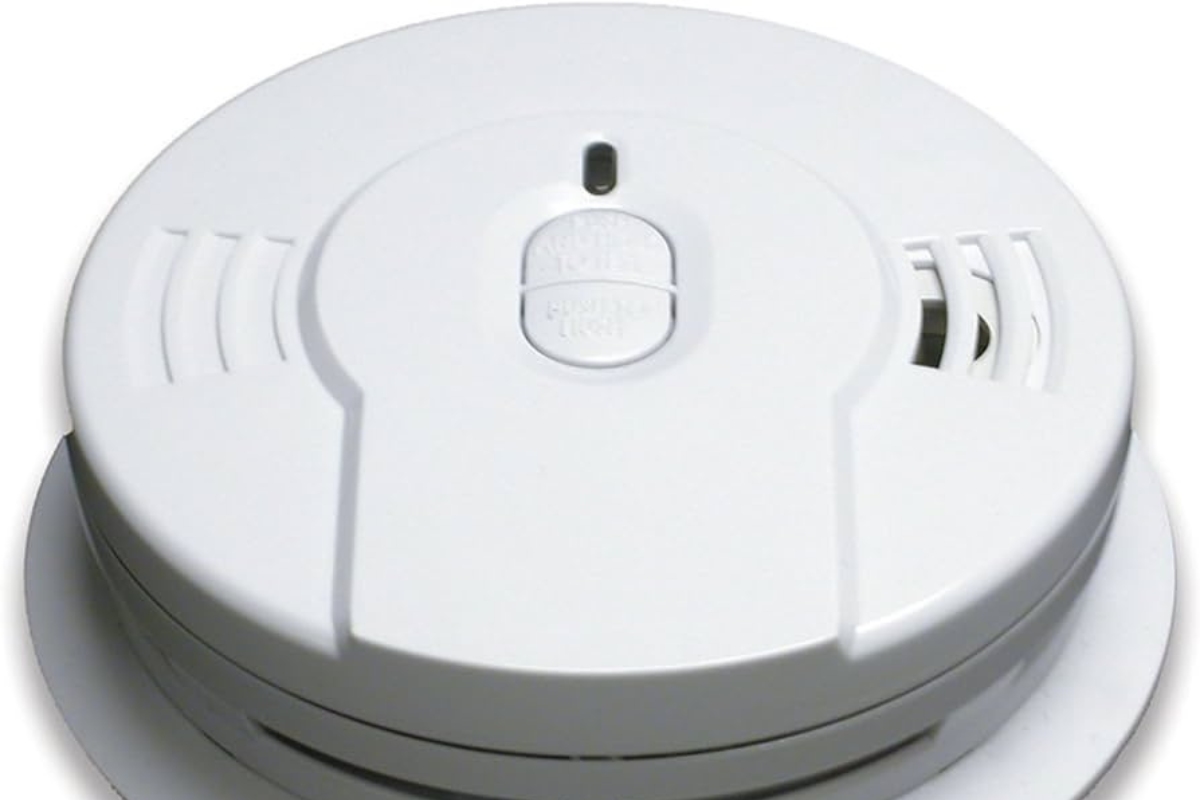

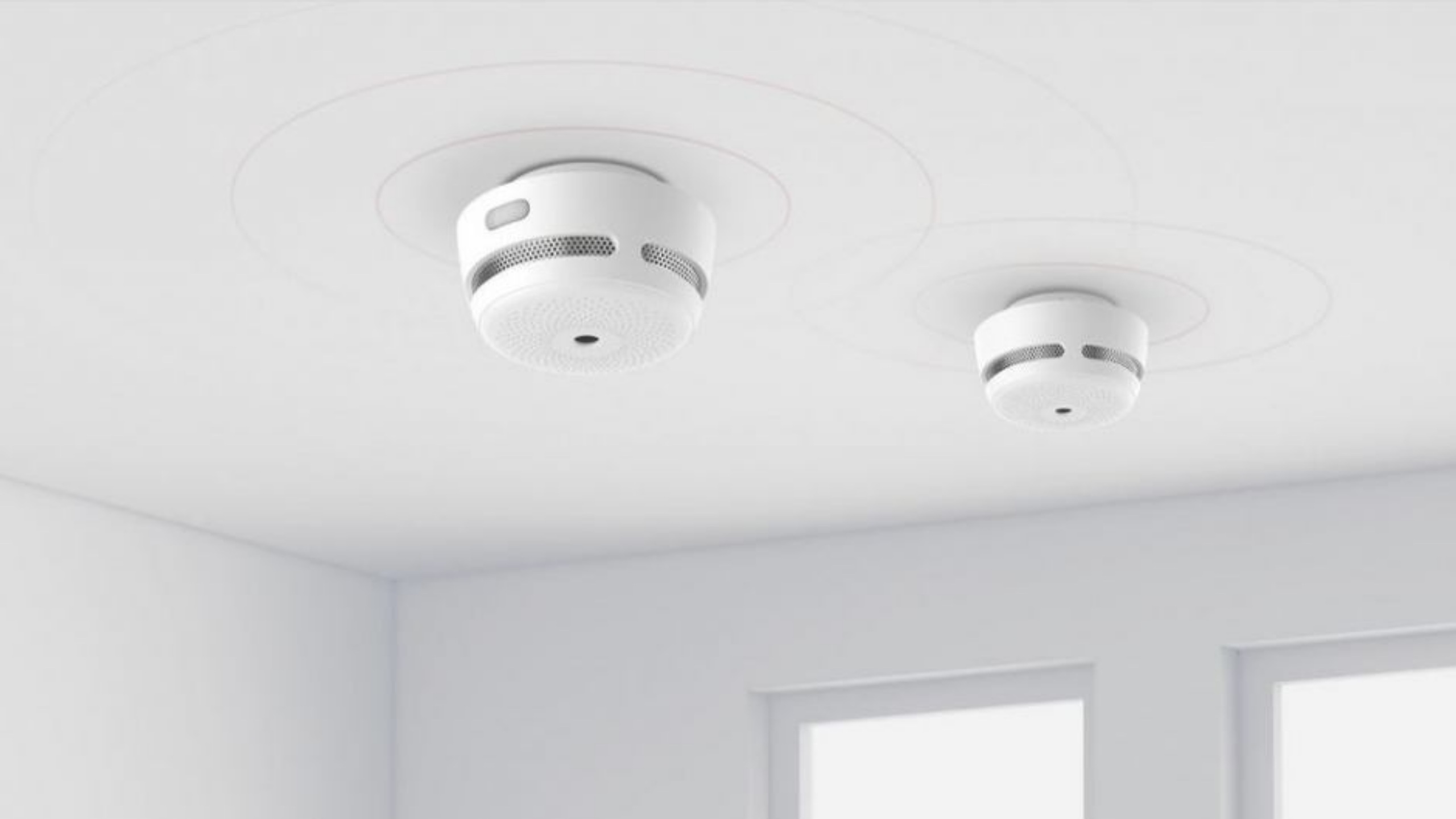

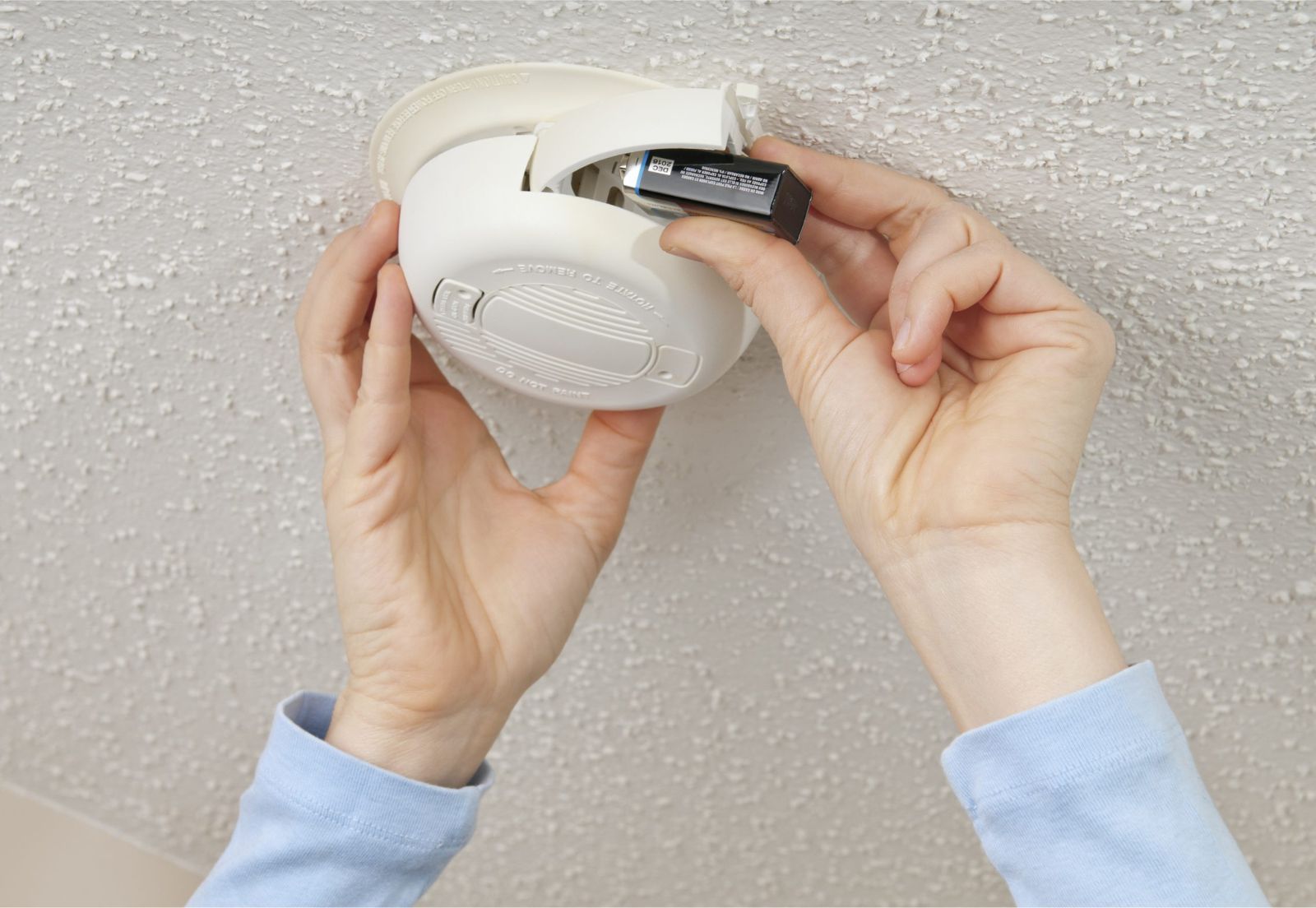



0 thoughts on “How Often Should You Change Smoke Detector Batteries?”